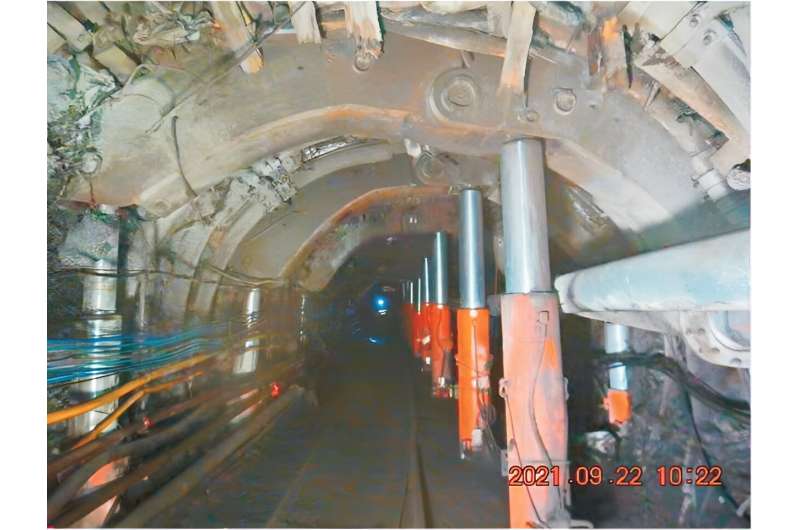This article has been reviewed according to Science X's editorial process and policies. Editors have highlighted the following attributes while ensuring the content's credibility:
fact-checked
proofread
Key instability theory to reduce rock burst risks and enhance coal mine safety

Rock bursts, commonly associated with coal mining activities, involve the abrupt release of elastic energy from rock masses. Recognized as a major challenge in mining engineering and rock mechanics worldwide, they can lead to the destruction of underground passageways, damage to equipment, and even result in casualties.
To date, however, there remains a lack of mathematical and mechanical model and bursting initiation criteria of rockburst, Furthermore, a technical system for monitoring and preventing rock bursts, grounded in bursting occurrence theory, has yet to be established.
In a study published in the journal Geohazard Mechanics, a team of Chinese researchers introduced the disturbance response instability theory for rock bursts. They also detailed a rock burst prevention approach system they developed, which is capable of assisting with risk assessment, monitoring, prevention, control, and designing bursting-resistant supports in rock burst-prone roadways.
"The theory pertains to the disturbance response instability of rock bursts in coal mines. We've identified the critical stress and capacity conditions needed for these bursts to occur. In roadways, the stability of the deforming coal rock mass system is influenced by several factors: the coal's uniaxial compressive strength, the bursting energy index, the roadway's radius, and the support stress," said co-author of the study Aiwen Wang, a professor at the Disaster Rock Mechanics Institute at Liaoning University.
"In essence, rock bursts can be seen as an instability in the coal rock mass deformation system, which arises due to various control, disturbance, and response variables,"
Drawing from the disturbance response instability theory of rockburst, this study examined the crucial factors that dictate the occurrence of rock bursts. These include mining stress, geostress and the bursting tendency of coal material. It integrates the process of rockburst prevention and control, which encompasses disaster risk evaluation, monitoring, prevention, control, and designing bursting-resistant supports for rockburst-prone roadways.
Consequently, this instability theory will lay the foundation for a comprehensive system addressing the mechanism, prediction, and prevention of rockbursts.
More information: Yishan Pan et al, Disturbance response instability theory of rock bursts in coal mines and its application, Geohazard Mechanics (2022). DOI: 10.1016/j.ghm.2022.12.002
Provided by KeAi Communications Co.




















